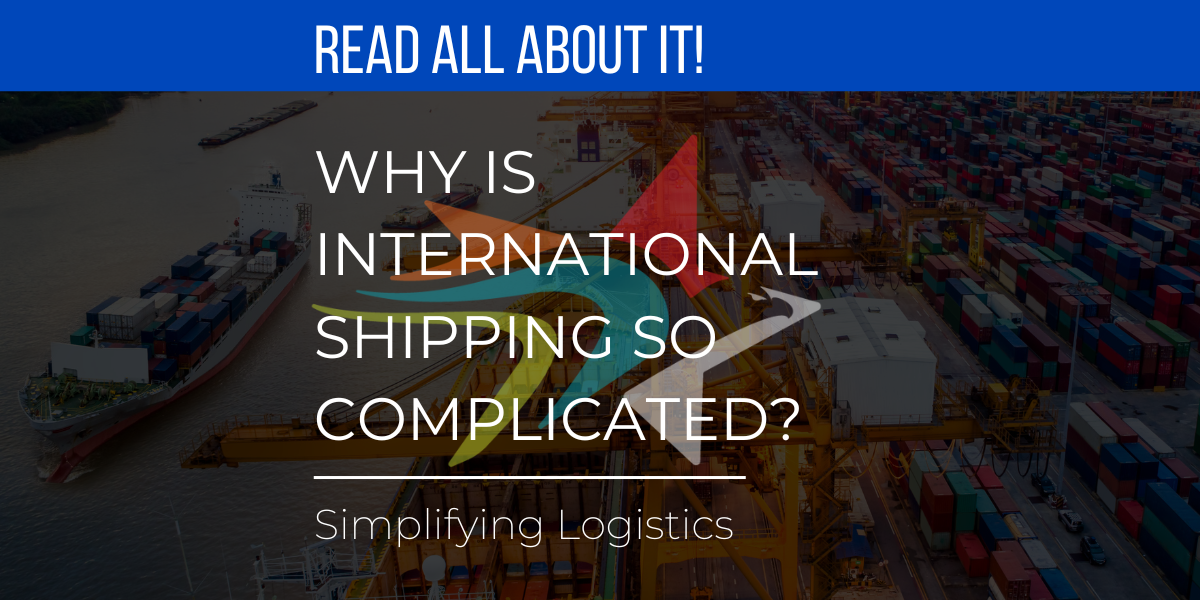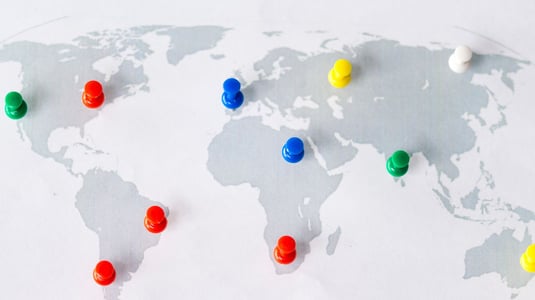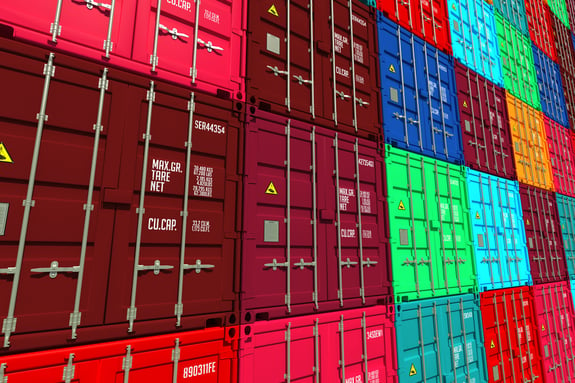
Shippers Guide: What Makes International Logistics Complicated.
If you're shipping internationally, either in or out of a country, you've surely noticed that it's a complicated process. Customs, Forms, HTS Codes? There's a ton of information that has to be ready and accurate. But, it's more than just getting all of the correct information.
Let's break it down: Watch to video to learn.
Complexity #1: Milestones
Undoubtedly, international shipping seems complicated because of how many steps in the process. Before explaining why this is so complicated, we must know the steps international freight will take.
To start, you must get your product or shipment from its current warehouse to the port at the origin. Then, get it from the port onto a ship, cross the ocean - hopefully without incident, clear customs, get off the ship at the destination, and finally - get from the destination port to the delivery location. That's six unique steps that often involve one or more companies and multiple individuals at each step.
 We call these steps "milestones," each representing points that can cause significant holdups in a shipment's journey from country to country. At one, many, or all of these milestones, it's possible for a load to get hung up. And the problem is, if you find one of these "hang-ups" or "snags" at one milestone, each subsequent step will require adjustments.
We call these steps "milestones," each representing points that can cause significant holdups in a shipment's journey from country to country. At one, many, or all of these milestones, it's possible for a load to get hung up. And the problem is, if you find one of these "hang-ups" or "snags" at one milestone, each subsequent step will require adjustments.
That represents quite a bit of complexity just right here. But wait...there's more.
Complexity #2: International Quotes Done Right (and wrong)
When you get a quote to ship something internationally, You might assume that a forwarder or other logistics partner will quote you for handling every milestone. It seems logical, right?
Hopefully, that's the kind of quote you get from your partner. But did you know - that it's also possible for a logistics partner to hand you an international quote and leave off one (or more) of those six significant milestones?
It might be because they assume that's what you want - they might not be used to handling every step. Or it might be more devious: a way to show you a low ball quote and use it to get your business knowing that when your shipment is already underway, they can get you to pay a new "surprise" cost for a milestone they didn't include initially. It's not a good situation, even if it's not intentional.
So, to avoid this, ensure your international shipping quote includes pricing for each step or milestone mentioned above—origin to destination.
Complexity #3: Paperwork
Paperwork is fun! Said no one ever. International shipping is full of paperwork: Bills of lading, Waybills, title documents, Bills of sales, Customs documents (including any taxation information), Health and safety certificates, Import permits, and Certificates of origin. The list even goes on, but you get the point.
The complexity is that you're dealing with different countries: different people with their own cultures, customs, and history. A whole series of events over time led them to shape their importing process the way it works. Some countries have strict procedures and rigid paperwork requirements. Others are a bit less strict. In either

case, a misstep with incorrect paperwork could hold up your shipment for a long time until it all gets cleared up.
So bottom line, you're not only shipping but also getting involved in a little bit of their culture. And as anyone who has ever dealt with someone who speaks a foreign language can attest: it's good to slow down, take your time, and make sure not to assume anything or risk getting lost in translation.
Knowing which paperwork is required, how to fill it out, and where it needs to go - is a lot like the job of a translator. It's part science and part art.
Complexity #4: World Conditions
It's no secret that many people want to ship things internationally. Entire economies are built on it. And while that's always the case, world conditions can put further pressure on that demand and create more complexity. Take the current situation: as of this video, we see a tremendous need for space on any ocean vessel shipping containers. With so many more people wanting space than there is, it takes proactive effort to get space reserved. Knowing this, and knowing how to handle this, adds more complexity.
But it doesn't stop there: Covid regulations about sanitization, port closures, congestion at ports. These are (hopefully) temporary conditions that add complexity to the shipping process. A good logistics partner who knows how to handle them before they become issues is key to success.
Complexity #5: Customs Clearing
Lastly, I'd be remiss not to discuss the complexities of clearing customs. I think most people are away that it's not easy - and we talked a little bit about how paperwork can stop your shipment and how culture affects so much in the process. But even further, some customs agents will scrutinize shipments from certain countries, certain shippers, or shipments containing certain items. 
Sometimes these increased scrutinies are officially sanctioned. And sometimes, they're not. The complexity comes in knowing what is likely to get increased scrutiny and proactively addressing it before getting to customs. This, combined with proper paperwork and good relationships with someone in the country, makes customs clearing as simple as possible.
Conclusion
No matter how you break this down - international shipping is complex because it's a people process. People from different countries with other languages, customs, and procedures are all trying to work together. Add constraints and pressure from world conditions, and you have a recipe for instant complexity. So, to beat the complexity, make sure you work with a logistics partner who knows how best to work with people because people are what make this all possible.